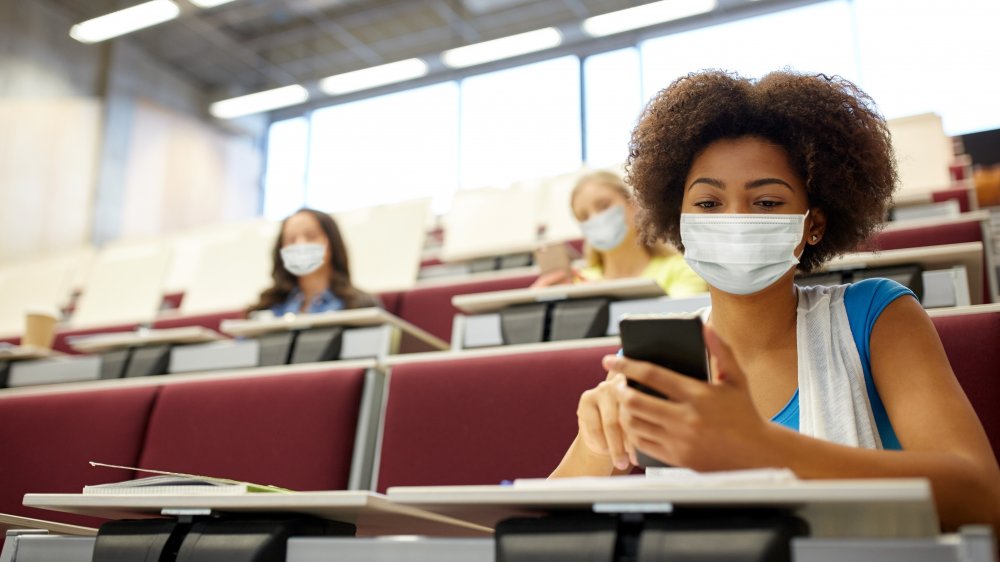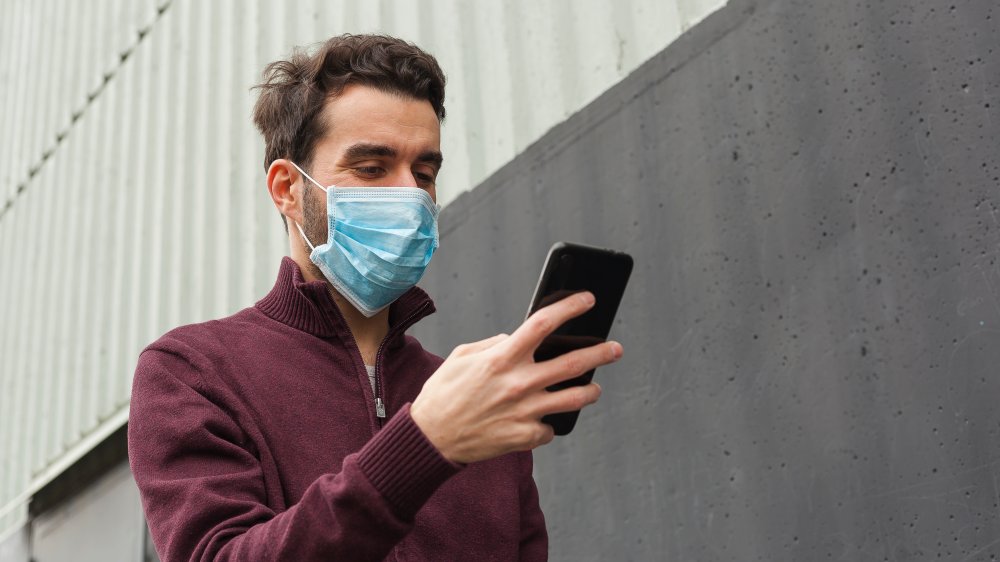How An App May Be Able To Detect COVID In Asymptomatic People
If scientists are successful, the phrase, "There's an app for that!" soon could apply to being able to detect the coronavirus, even in people who show no symptoms (via the BBC). Researchers at the Massachusetts Institute of Technology (MIT) earlier this year developed an artificial intelligence (AI) algorithm to identify people who had COVID-19 only by the sound of their coughs, the BBC said.
Through April and May, they compiled "cough recordings" from 5,320 subjects through their website specifically for this project (via the IEEE Journal of Engineering in Medicine and Biology). They've separately collected about 70,000 audio samples, including coughs, for other research. The study discovered that when validated by official COVID-19 test results, the algorithm successfully identified subjects with the virus 98.5 percent of the time, according to their study, published in the IEEE Journal of Engineering in Medicine and Biology.
"The way you produce sound changes when you have COVID, even if you're asymptomatic," MIT scientist and study co-author Brian Subirana told the BBC. Human ears can't detect this difference in sound, they said. In subjects who exhibited no symptoms but tested positive, the algorithm correctly identified that they had the virus 100 percent of the time, the research shows.
If approved, the app could provide a non-invasive real-time testing tool
The researchers need regulatory approval to develop this technology into an app, but they said in the IEEE Journal that these AI techniques "can produce a free, non-invasive, real-time, any-time, instantly distributable, large-scale COVID-19 asymptomatic screening tool to augment current approaches in containing the spread of COVID-19."
Practical uses of such an app could be for daily screenings in public venues such as schools, transportation hubs, community locations such as pools, and workplaces. The app also could "quickly alert of outbreaks in groups," the researchers wrote.
The BBC notes that several other organizations, including Cambridge University, Carnegie Mellon University, and UK health start-up Novoic, have been working on similar projects. A Cambridge project in July reported an 80 percent success rate in using a combination of cough and breath sounds to identify positive COVID-19 cases.
AI expert Calum Chase, author of Surviving AI, told the BBC that the research is the same principle as "feeding a machine a lot of X-rays so it learns to detect cancer... It's an example of AI being helpful. And, for once, I don't see a lot of downside in this."


